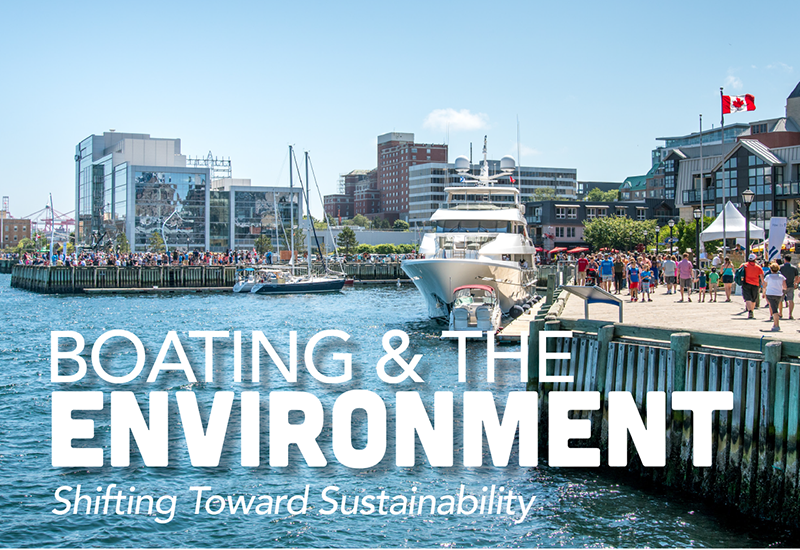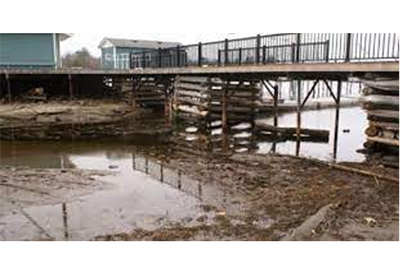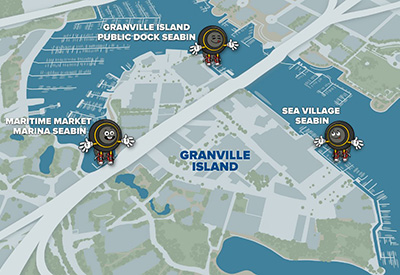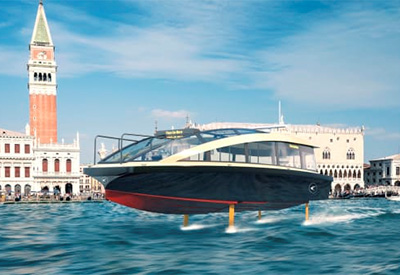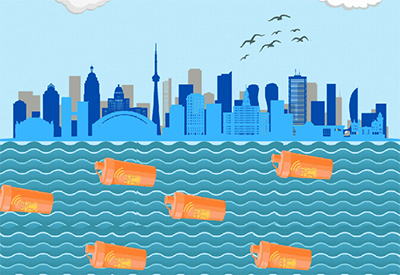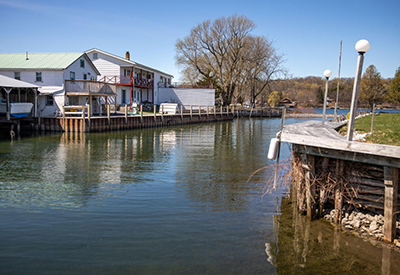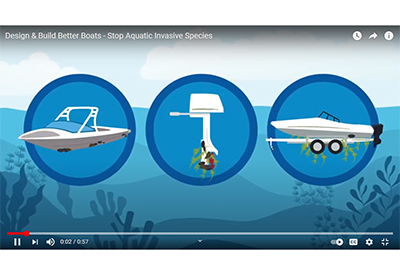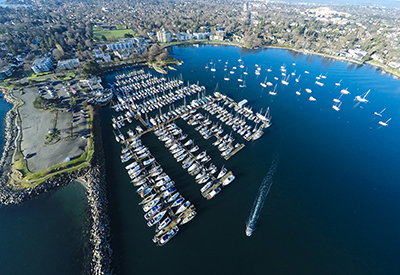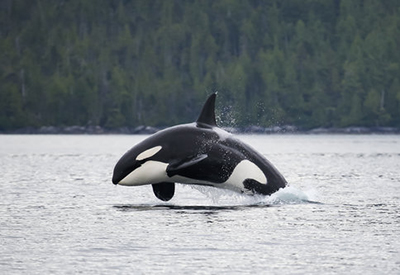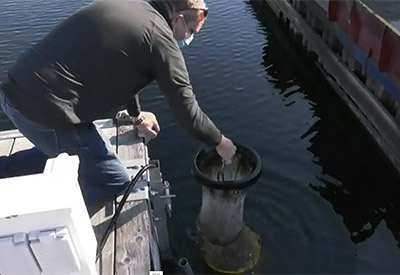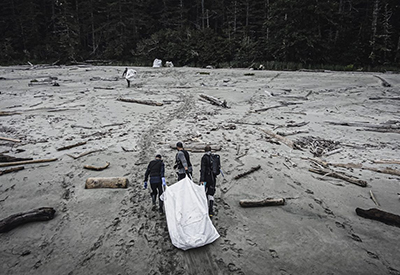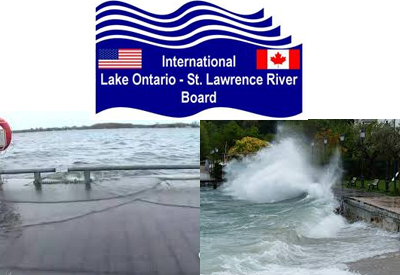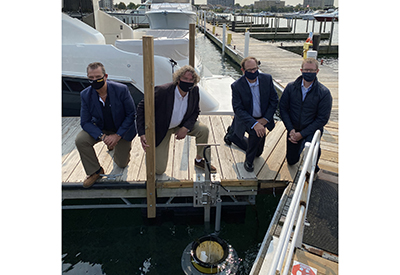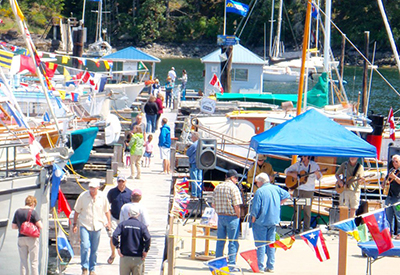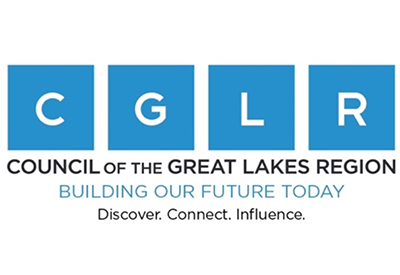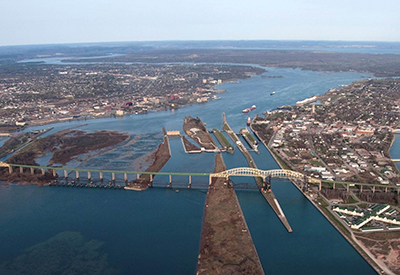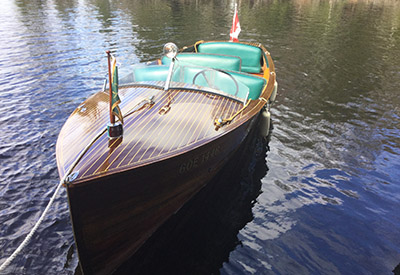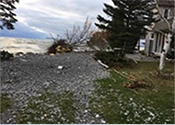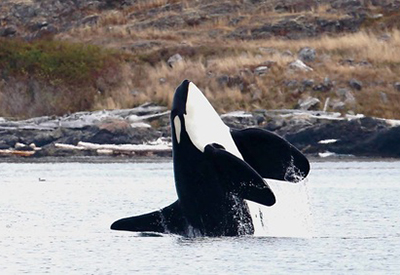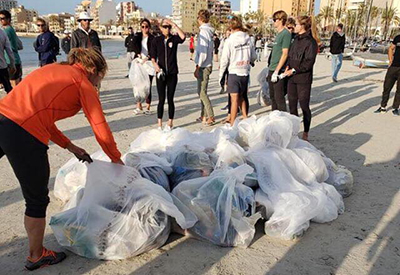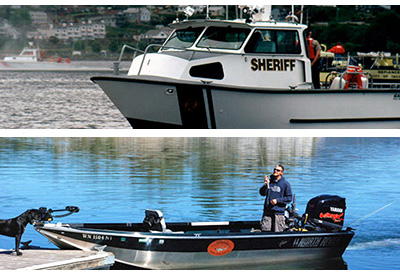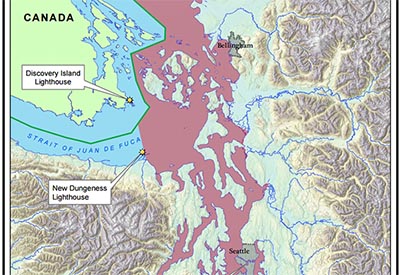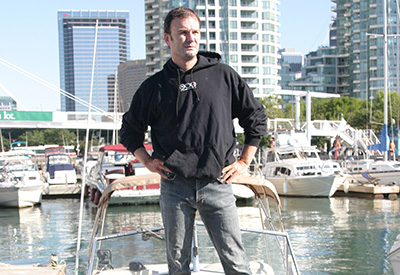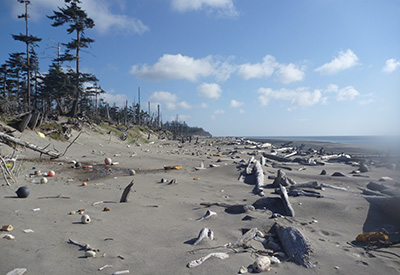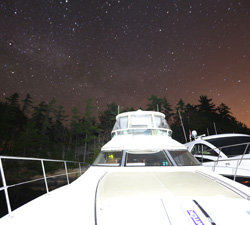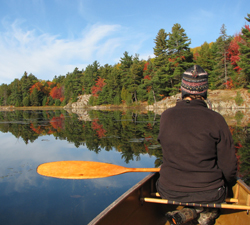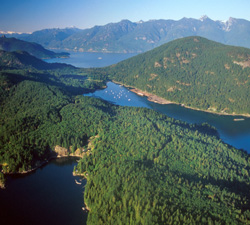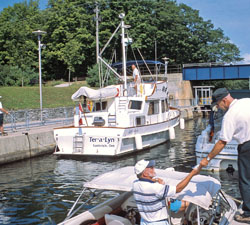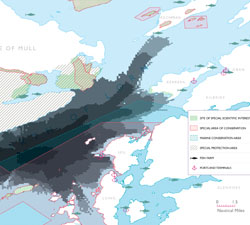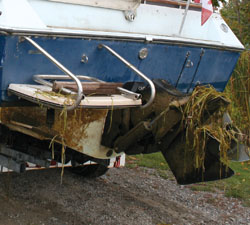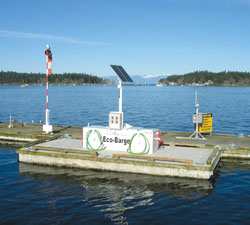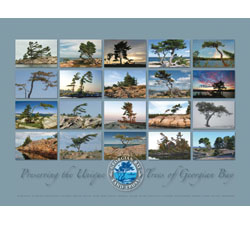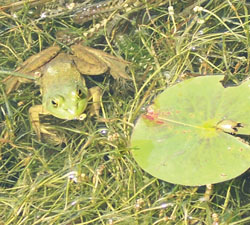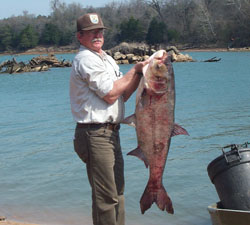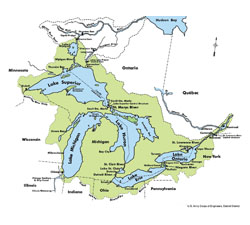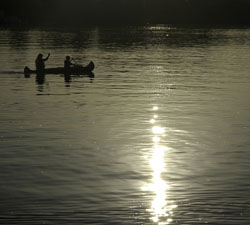March 26, 2024
Boating & The Environment: Shifting Towards Sustainability
May 1, 2024 The Halifax waterfront has been a Blue Flag…
July 6, 2022
Lakes Huron/Michigan could see 3.5 foot drop below record low levels by 2030: study
A study on water levels projects an unprecedented drop of water levels on Lakes Michigan-Huron and Georgian Bay to 1.1 metres (3.5 feet) below the record low by 2030. By 2040, levels may rise to 0.3 metres (one foot) higher than the 1986 record high.
July 7, 2021
Floating Trash Skimmers Have Come to Granville Island
Swim Drink Fish is spearheading the Vancouver Plastic Cleanup by installing, maintaining, and overseeing multiple Seabins in Vancouver over the next three years to engage in a waste characterization, plastic education, and advocacy project.
June 22, 2021
Venice is sinking – but flying electric boats might be the solution
Candela P-30 is an electric ferry that builds on Candela’s technology developed for the leisure boats model C-7. “Moto Ondoso” – wake damage – from thousands of motorboats is slowly eroding the iconic buildings of Venice. A Swedish-designed electric boat that flies above the water might be the answer to the city’s problems.
May 11, 2021
What are those orange bottles?
If boaters in Ontarians ever get to launch, they may run across some special orange bottles floating in the Toronto area. The bottles are part of the Tagging Trash Project a solutions-based research project as part of their Fighting Floatables in the Toronto Harbour initiative.
April 21, 2021
Lake Ontario Water Levels: low, but rising.
As anyone who has been near a familiar – to them – part of the lakeshore can attest, water levels are pretty low. While there seems to be no fear of flooding like in past years, some deep-draft yachts are reportedly currently unable to launch at some facilities due to the low levels.
February 24, 2021
National Invasive Species Awareness Week
This week, Feb. 22-26, is National Invasive Species Awareness Week and the American Boat and Yacht Council (ABYC) released an animated video to raise awareness about the threat Aquatic Invasive Species (AIS) pose to the boating industry and what manufacturers can do to limit the spread.
January 27, 2021
Oak Bay Marina is the first of the Oak Bay Marine Group to achieve eco-certification in Clean Marine BC
Oak Bay Marina achieves eco-certification in Clean Marine BC, which helps boating facilities to reduce the impact of recreational boating on the Salish Sea and beyond through the implementation of improved environmental measures…
January 13, 2021
Whales! The biggest thrill of boating is the amazing wildlife we encounter in and around the Strait of Georgia.
Wildlife and their habitat are sensitive to disturbance from people, boats, and pets. Approaching whales too fast, getting too close, and excessive noise can cause stress and interrupt feeding, mating, socializing, resting, and calf nurturing behaviour.
November 17, 2020
CTV News Covers Marinas Participating In The Great Lakes Plastic Cleanup
CTV News crews were in Midland, Ontario to document the operation of Seabins at some of the Maple Leaf Marinas locations in Georgian Bay.
October 21, 2020
The Small Ship Tour Operators Association of BC operators collect 127 tonnes of marine waste impacting the Great Bear Rainforest
The Marine Debris Recovery Initiative (MDRI), a collaboration with the Clean Coast, Clean Waters Fund (Ministry of Environment & Climate Change Strategy), the Small Ship Tour Operators Association of British Columbia (SSTOA) and Coastal First Nations, have completed a 6 weeks marine debris clean up expedition, covering over 1000 kilometers of remote coastline.
October 21, 2020
Learning from High Water Impacts on Lake Ontario and the St. Lawrence River
The International Joint Commission (IJC) is reviewing Plan 2014 and could use your help. The plan spells out how much water is released from Lake Ontario through the St. Lawrence River. A 2020 questionnaire is now available for people to provide information on the impacts of high water levels.
October 7, 2020
Coalition launches Great Lakes Plastic Cleanup to address alarming pollution levels
The Council of the Great Lakes Region (CGLR), thanks to funding from Environment and Climate Change Canada, recently announced the launch of the first phase of the Great Lakes Plastic Cleanup initiative…
September 9, 2020
BC’S Marine World is Pristine. Let’s Keep it that Way.
We recognize the potential impact that boats have on the marine ecosystem, and the communities we enjoy. It’s up to all of us to understand how we can minimize our impact and practice responsible environmental stewardship.
September 9, 2020
Plastic Pollution in the Great Lakes Reaches Alarming Levels
New Great Lakes Plastic Cleanup Initiative aims to tackle the problem head-on through the largest deployment of Seabin and LittaTrap™ technology in the world.
July 21, 2020
IJC updates Lake Superior Outflows and Expected Conditions – July 2020
Basin conditions were generally near average or drier than average in June, around both Lake Superior and Lake Michigan-Huron. As a result, water levels did not rise as much as they typically do in June.
June 24, 2020
Classic Mahogany Meets Electric Propulsion
Classic boat restoration expert and wooden boat builder Stan Hunter recently sent us this great story about his new Duke Playmate re-power. Here is what Stan wrote, “It seems that every time there is a pandemic someone has to get creative and reinvent the wheel.
November 19, 2019
News Week Readers Sound The Alarm On Rising Great Lakes Water Levels
This is an urgent message from several News Week readers that action needs to be taken immediately, to lower the water levels in the Great Lakes. The International Joint Commission (IJC) is the body that has the authority to control the outflows of water through the Moses-Saunders Dam.
May 8, 2019
Boating BC is asking for your feedback to recover the Southern Resident Killer Whales
Over the past few months Fisheries & Oceans Canada and Transport Canada have led a number of Technical Working Groups to make recommendations on measures to recover the Southern Resident Killer Whales (SRKW). Boating BC participated in the process with a seat on the Sanctuaries Working Group.
April 10, 2019
Canadian competitors clean beaches
At the end of last month, Canadian sailors gathered on the Palma Beach in Palma de Mallorca, Spain where they were competing in an important European regatta, to complete an hour-long beach clean-up.
June 13, 2018
New Washington State fee for Visiting Boaters – The Aquatic Invasive Species legislation
This new legislation from Washington State Department of Fisheries applies to boats launched in Washington State.
May 9, 2018
Puget Sound is now a no-discharge zone for vessel sewage
British Columbia boaters will need to check out the new no-discharge zone before heading off to American waters in Puget Sound.
December 18, 2015
Mark Mattson – Spearheading the Ripple Effect across Canada
Mark Mattson is a man of gentle demeanor but don’t be fooled by his calm, cool collectedness. This man moves mountains, lakes and rivers to make sure Canadians will be able to swim, drink and fish anywhere in Canada from coast to coast to coast. Like many of us, Mattson’s love of the water and boating started at an early age. And during his career as a criminal lawyer, Mattson had an opportunity to work on a case with the Ministry of the Environment that whet his appetite for wanting to protect Canadian waters. This and a chance meeting with Waterkeeper Alliance President Robert F. Kennedy, Jr. during a case involving Hydro Quebec fueled his appetite, and in 1995 Mattson left Osler, Hoskin & Harcourt LLP to form the Environment Bureau of Investigation (EBI).
December 18, 2015
Plastic Pickup in Paradise
We hear about the plastic problem in our oceans all the time. Scientists on the media talk to us about an island of trash the size of Texas that’s formed in the mid Pacific. They show us pictures of turtles caught in six ring beer holders, dolphins caught in nets and dead seabirds washed up with their stomachs full of broken down micro plastics. For me, it wasn’t until the problem arrived, wind ravaged and sun worn, strewn across my doorstep that that the magnitude of what those scientists were trying to tell us was realized. The beaches on Haida Gwaii have always been a magnet for the flotsam and jetsam that circles the Pacific. The archipelago sits off shore from the mainland and reaches out into the currents and wild winds of open ocean. Some beaches collect the debris and display it for a while and then it’s simply swept back into the sea to continue its journey, but some beaches here hold on to the debris and do not let it go.
November 4, 2013
Star light, star bright
Boating and astronomy can be a match made in the heavens. The inky black canvas above the boat is punctuated by sparkling pinpricks of brilliant light. As if on cue, a meteor blazes across the sky, its dramatic trail tracing its path.It’s a mid-August night at Beausoleil Island in southern Georgian Bay. The moon has already plummeted below the tree line on a cloudless night, setting the stage for the Perseid meteor show, an annual display easily observed from the deck of a boat at anchor.
July 16, 2013
Boating in the Biosphere
The 30,000 Islands of Georgian Bay is a boater’s dream destination with crystal clear waters, endless anchorages, amazing angling opportunities, outstanding scenery and diverse wildlife and vegetation. It is also a United Nations Educational Scientific and Cultural Organization (UNESCO) world biosphere reserve, a designation awarded in 2004 after seven years of intensive work by a collective of cottagers, boaters, residents, First Nations representatives and organizations with support from government agencies.
April 4, 2013
Protecting BC’s Gulf Islands
Many Canadian Yachting readers have likely experienced the beauty of British Columbia’s Gulf Islands. Nestled between Vancouver Island and the mainland, this archipelago of more than 450 islands and islets offers calm seas, a gentle climate and stunning landscapes. What many visitors may not notice are the immense pressures on this much-loved area and the work of numerous conservation groups to save these fragile ecological jewels for all British Columbians and visitors.
March 8, 2013
Rideau and Trent Severn – Trouble on Ontario’s Canal Systems
Many newspaper headlines appeared in the spring of 2012 with these two names highlighted. The Rideau, a recently designated World Heritage Site, and the Trent Severn, with a combined age of 325 years, were designated as transportation routes until 1972 when the Federal Cabinet moved canal operations from the Department of Transport to Parks Canada. In March of 2012, during Federal budget deliberations, Parks Canada (PC) was given a budget reduction target of $29.2M over 3 years.
September 7, 2011
Emerging Risks – Boating and the Environment
RSA Insurance and the World Wildlife Fund report on emerging risks as a result of environmental change. The disaster unfolding in the Gulf of Mexico has made abundantly clear the increasing environmental risks to our shoreline. While, as recreational boaters we are directly effected by these risks, the issues are wide ranging, extremely complicated and of importance to everyone no matter where they live, since we will all be affected. Offshore drilling is just one challenge that will have to be faced along with increased shipping and aquaculture, and of course rising sea levels. On June 8, World Oceans Day, RSA Insurance in partnership with the World Wildlife Fund (WWF) released a global report on the marine risks that are emerging as a result of environmental change.
September 7, 2011
Aquatic Invasive Species (AIS) – What Are They – What Can You Do?
By definition, an alien species is a plant or animal occurring in an area outside of its known natural habitat as a result of accidental or intentional introduction by human activities. An alien species is considered invasive if its introduction and spread causes harm to the environment, society or economy. Throughout history human activities including settlement and trade have caused the introduction of aquatic invasive species (AIS) quite often to the detriment of native ecosystems. Over 200 non-native species of plant and aquatic life have become established in the Great Lakes; this number grows annually.
September 7, 2011
The Environment and the Community of Boaters
“If you work hard at keeping your marina clean, green and safe, your boaters will too. There is absolutely nothing to match the effect of leading by example” according to Hub Steenbakkers, the proprietor of Collins Bay Marina in Kingston, Ontario. “It is more than setting or enforcing rules, it is all about educating boaters in the critical role they play in maintaining the environment and setting expectations that become the social norm for behaviour.” At Collins Bay Marina, caring for the environment is an essential part of their business.
September 7, 2011
Boating on the Green Side in BC
In many sectors there’s a developing interest in all things environmental and the boating community is no exception. Boaters are taking more of an interest to what is happening in their cruising areas – and in “Beautiful British Columbia” there is much current interest. High on the list is the new pollution prevention regulation under the Canada Shipping Act. The regulation caused a serious uproar before it was made into law, as it seemed to be drafted with big ships in mind rather than small vessels – and because the bureaucrats in Ottawa appeared to have ignored some major recommendations of the west coast work group.
September 7, 2011
Georgian Bay Land Trust
Anyone who has ever sailed the waters of Georgian Bay is familiar with the iconic trees that line the shore and dot the islands. Sculpted by the prevailing west winds, they stand arched and graceful yet still solid and defiant and in their struggle with the harsh climate and sparse soil scattered amidst the prehistoric granite of the Canadian Shield. The Georgian Bay Land Trust (GBLT) was founded in 1997 to help preserve not only the famed trees of Georgian Bay but also the entire ecology of the unique archipelago that makes up the Eastern Channel and North Shore.
September 7, 2011
The International Joint Commission – Controlling Your Great Lakes Water
There are winners and there are losers and sometimes there’s just mud. Which to an environmentalist might be okay, if it means healthy wetlands, but to a boater mud spells disaster. Welcome to the contentious Lake Ontario-St. Lawrence River water levels issue that the International Joint Commission (IJC) is tackling. At first glance it seems, well…clear as mud. The commission is trying to balance the interests of municipal water supplies, hydro-electric power generation, environmentalists, commercial navigation, recreational boating and riparian (waterfront property owners) concerns.
September 7, 2011
Asian Carp: A New Challenge for the Great Lakes
Zebra muscles, lampreys, fertilizer runoff, chemicals, low water levels. The list of challenges facing the Great Lakes is a long and worrisome one. Many thousands of people depend on the health of the lakes for their livelihood and many millions are directly affected by their condition. Now the Great Lakes may be on the verge of playing host to some new and unwelcome guests. The Asian Carp are on the move and a lot of people are very worried indeed. Although the carp’s jumping antics have made it a You Tube star, it is their voracious appetite and efficient breeding that have many environmentalists, fishermen and recreational industry experts fearing the worst. That the Asian Carp represent a threat to the lakes is not in dispute, but just how much of a threat and what to do about it, is hotly contested.
September 7, 2011
North America’s Great Lakes – Where’s the Water Going?
Lots of Stakeholders in Lake Water Levels In recent years low water levels on the Great Lakes have boaters and waterfront property owners looking for answers. North America’s Great Lakes hold about 18% of all the surface fresh water on earth and the Great Lakes Basin is home to some 40 million people. From these facts you can be certain of two things: 1) What happens to the lakes is incredibly important and 2) figuring out exactly what is happening to them is incredibly complicated. The 774,000 square kilometers of the Great Lakes Basin includes parts of eight US states and Canada’s largest province, ensuring that lots of different governments, agencies, and interest groups, all want to have their say.
September 7, 2011
Environment Matters
When it comes to matters of our environment, it is action not rhetoric that makes the difference. Going green, protecting and or improving the environment, reducing emissions, greenhouse gas…how many times have you heard or read these words in the past year or two? There is plenty of rhetoric in the media but in terms of real action, how are boaters affected by environmental concerns?

